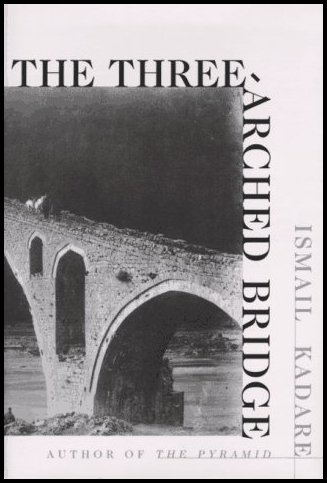The Rage of the Vulture by Barry Unsworth (W. W. Norton & Co.)
An early book, 1982, by a great writer. This deals with a self-centered Brit assigned by the British Army to Constantinople just after the turn of the 20th century. Good for history lovers, but the characters are flat.
The City of Falling Angels by John Berendt (Penguin Press, 2005)
I’ve not been to Venice and I loved this book. For those who have visited, this book will refresh and enhance their experience. It’s the tale of the burning of the Fenice Opera House in 1996. Berendt weaves story upon story, cunning upon stupidity upon bonhomie. A tour-de-force of creative non-fiction.
The Three-Arched Bridge by Ismail Kadare - (Arcade Publishing, 1993)
Kadare, an Albanian, always writes interesting novels about a part of the world mostly unknown to us. This is a folk talk about a young woman walled up in a new bridge, one breast left exposed so she can suckle her infant. Need I say more? Though the era is undated, it appears to be medieval, but Albania lagged far behind the rest of Europe. I found this book interesting and recommend Kadare’s books to anyone who wants a “slice of history” adventure.
The Bookseller of Florence: The Story of the Manuscripts That Illuminated the Renaissance by Ross King (Atlantic Monthly Press, 2021)
A fascinating history of the historically significant transition of the western world from manuscript to printing press--told through the biography of the last of the famous manuscript producer of Florence, Vespasiano da Bisticci. At 496 pages, it’s a big read, with many colorful characters. For history lovers only.
Machines Like Me by Iwan McEwan (Jonathan Cape, 2019 - intelligent mischief, complex characters, speculative fiction. I’ve read every one of McEwan’s novels, and this does not disappoint. Compelling read, even if the end was a bit flat.
The Anarchy: The East India Company, Corporate Violence, and the Pillage of an Empire by William Dalrymple (Bloomsbury Publishing, 2019)
Hard to know who caused more chaos in India in the 17th and 18th centuries – the East India Company or the many feuding tribal empires within India. The Company created mayhem by siding with one opponent over the other, using their Company military, seeking inland trading rights to goods that they funneled through their Company-owned ports. By the time the Company controlled most trade, the Indians rose against them and the British government stepped in and took over The East India Company. A pretty easy read for such a broad spread of history. Well written.






